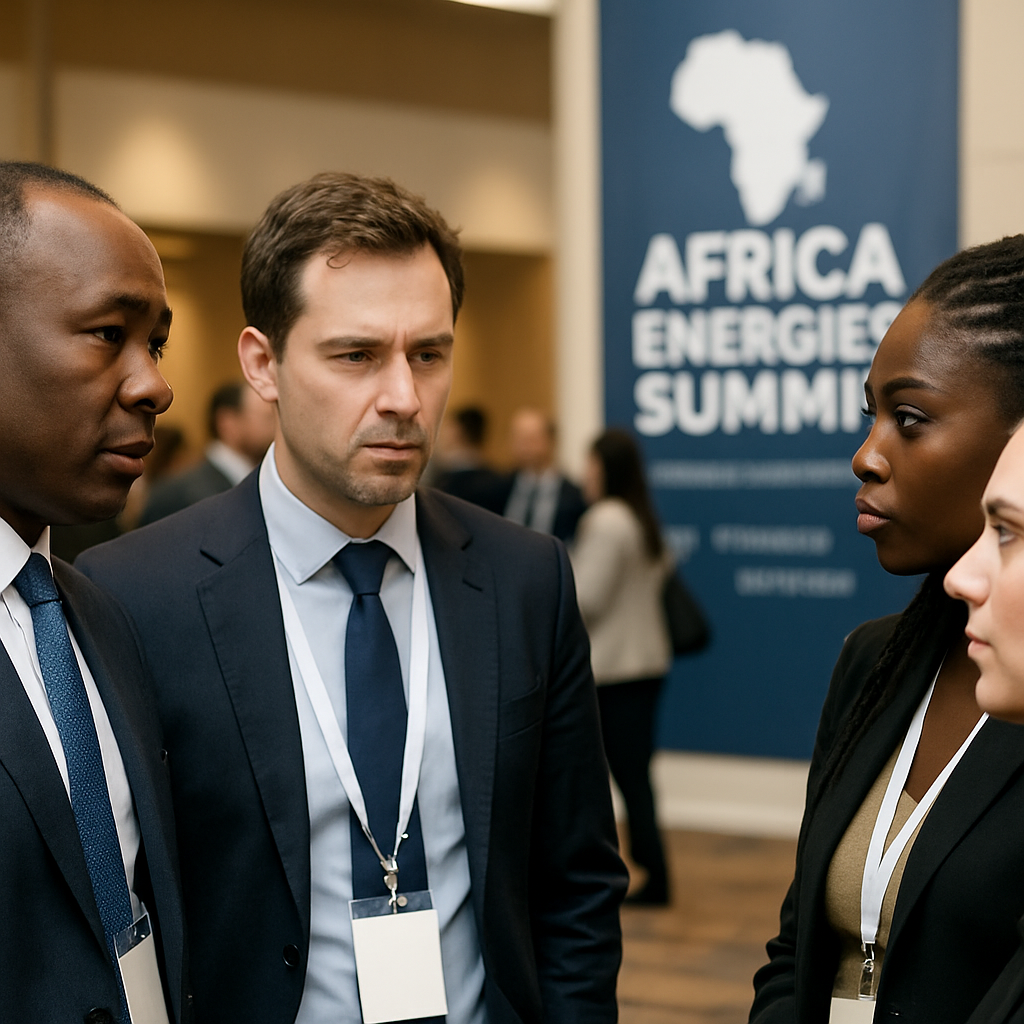Africa Energies Summit Must Reflect African Diversity in Its Workforce Now
The AEC is demanding that Frontier end its exclusionary hiring practices and begin employing Black Africans, especially given their indispensable contributions to the very markets fueling the summit’s profitability.

- Country:
- South Africa
The Africa Energies Summit, organized by Frontier, has long positioned itself as a key convener in shaping the continent’s energy future. Held annually in London, the summit attracts top-tier government officials, corporate executives, investors, and innovators from across Africa and beyond. The event boasts high-level participation from countries such as Nigeria, Angola, Ghana, South Africa, Kenya, Namibia, and more—all of which play vital roles in the continent’s energy ecosystem. Yet, despite the summit’s success and deep commercial ties to Africa, a disturbing pattern remains: Black Africans are conspicuously absent from the company’s workforce.
This systemic exclusion has sparked outrage from industry stakeholders, particularly the African Energy Chamber (AEC), which has issued a bold call to action. The AEC is demanding that Frontier end its exclusionary hiring practices and begin employing Black Africans, especially given their indispensable contributions to the very markets fueling the summit’s profitability.
A One-Sided Relationship: Reaping Without Representation
Frontier’s business model relies heavily on Africa’s energy sector. It draws millions in revenue from sponsorships, exhibitions, and government partnerships originating from African nations. Yet, the organization has not extended this partnership internally by hiring Black Africans—those whose countries and institutions are central to the summit’s growth.
This absence is not for lack of talent. Across the continent, there is an abundance of highly qualified professionals with the expertise, vision, and global experience required to thrive in international energy conferences, business development roles, policy leadership, and more. What seems to be holding them back is Frontier’s reliance on closed, personal networks—favoring individuals “they know, trust, and like.” As NJ Ayuk, Executive Chairman of the African Energy Chamber, aptly stated, “We are not part of that circle.”
Diversity Isn’t Optional—It’s a Strategic Imperative
This imbalance goes beyond a moral issue—it’s a failure of strategic foresight. In today’s interconnected world, diversity drives innovation, improves decision-making, and enhances business outcomes. Companies operating within African markets cannot afford to exclude African voices from their decision tables. The energy industry, more than most, must be responsive to the geopolitical, social, and environmental dynamics of the regions it serves.
NJ Ayuk, who has long advocated for inclusive growth in the African energy space, emphasized that real inclusion is not about tokenism. “Black Africans are not only capable of doing the job—they are essential to doing it right,” he said. He applauded the oil and gas sector for making strides in promoting Africans—especially women—into leadership, while questioning why Frontier has failed to adopt similar values.
The Hypocrisy of Hosting an ‘African’ Summit in London Without Africans
Adding to the controversy is the summit’s location. Many have questioned why an event branded as an “Africa Energies Summit” is hosted in London rather than on the continent. While London may offer logistical and financial advantages, hosting the event outside Africa reinforces the perception that Africans are good enough to supply the resources, sponsor the programs, and fill the seats—but not to lead or shape the narrative.
This issue has become a symbol of deeper structural inequalities that persist in global energy dialogues. African nations, companies, and professionals deserve more than symbolic representation—they deserve power, presence, and parity.
The Call for Immediate Action
The African Energy Chamber has made it clear: this is a moment for accountability. It is urging Frontier and the Africa Energies Summit to:
-
Immediately diversify its staff by hiring qualified Black Africans across all departments—particularly in leadership, programming, and policy.
-
Adopt transparent and inclusive hiring practices, moving away from reliance on insular networks.
-
Host future summits in African countries, rotating the event among the many nations that support and sponsor it.
-
Develop mentorship and leadership pipelines for young African professionals in the energy space.
This is not just about one company or one summit—it’s about reshaping how Africa is represented in global industries. Energy is one of the most strategic sectors for Africa’s future, and Africans must have a seat at every table where decisions are made.
No More Lip Service
The Africa Energies Summit can no longer afford to operate as if African talent is invisible. The benefits it draws from the continent must be matched with a commitment to reflect its people—starting from within. Inclusion is not an act of charity; it’s a necessity for credibility, relevance, and long-term success.
As the African Energy Chamber continues to hold institutions accountable, the message is clear: diversity must move from buzzword to business model. Anything less is a betrayal of the very markets these organizations claim to serve.










